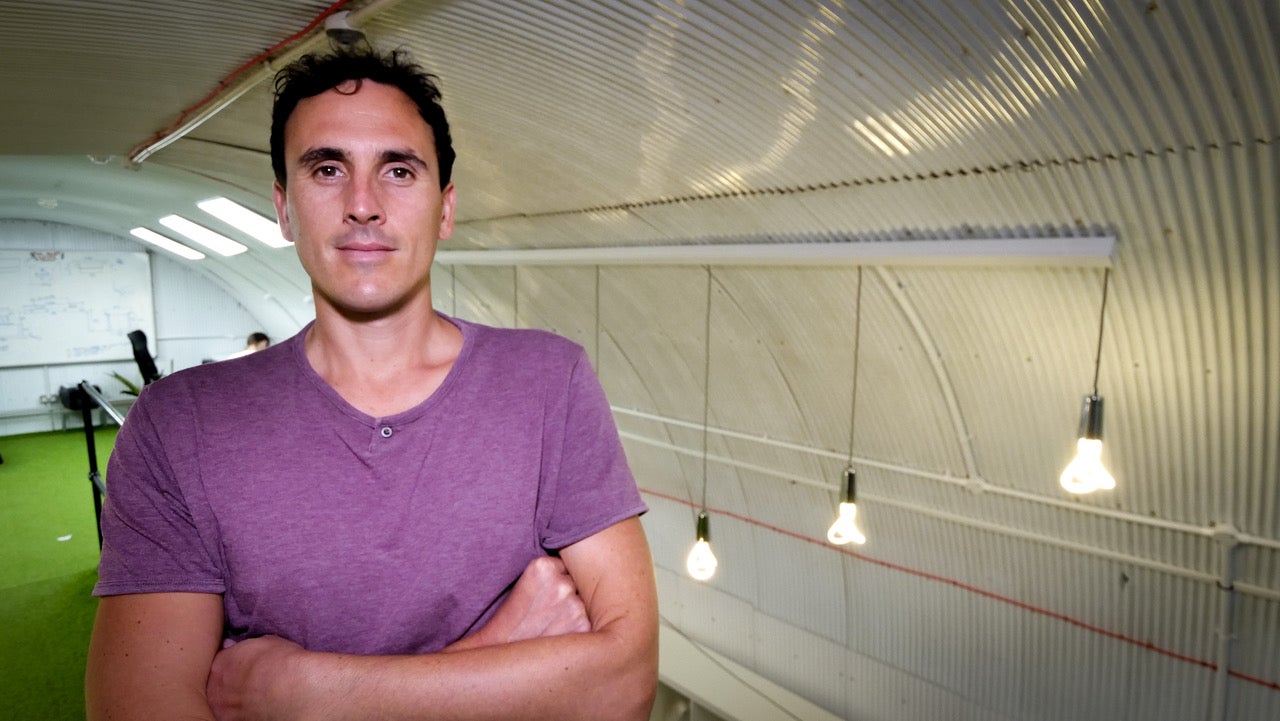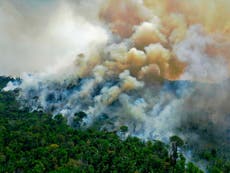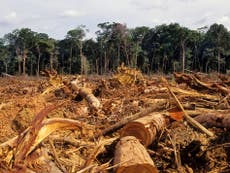‘We will eat more insects ourselves’: Entocycle is aiming to feed animals in a sustainable way
Andy Martin finds out more about the company looking to change the way we feed animals to prevent deforestation and save our planet


He always detested the computer room at school. “If anyone had told me that 90 per cent of starting a company is sitting in front of a laptop composing emails,” says Keiran Whitaker, “I’d never have done it.” He loves the great outdoors and doesn’t mind getting his hands dirty. Which probably helps when it comes to farming insects at Entocycle, where he is founder and sustainability leader.
His father is from Chile, his mother from the midlands, and he was brought up in south London. “My Mum was a left-wing hippy,” he says. “We always composted. And switched lights off.” He reckons that at Entocycle 80 per cent of the 20-strong team cycle to work and nobody drives.
Whitaker has tried his hand at different jobs since he was 12 years old, graduating from a paper round to a stint as a librarian and putting in shifts at the Mini plant while at university. His gap year took him across South America, where he spent a month in the Ecuadoran rainforest working on a reforestation project. To cap off his studies in environmental design at Oxford Brookes University, he wrote a dissertation completely blowing a hole through conventional wisdom, titled “Money Really Does Grow on Trees” – making the case that local authorities should be investing in green spaces and biodiversity.
Whitaker drove a mini-cab around London to raise funds to follow in his mother’s footsteps and go on the hippy trail, overland to India. While he was in the Andaman Islands he learned to scuba dive, and went on to become a professional dive master and instructor, teaching others to dive in Malaysia and all around southeast Asia. Later he taught cave-diving in Mexico and Honduras. A perfect job, in many ways, but also disheartening. “The first time you go diving, it’s so beautiful. And then eventually you realise: the coral reefs are getting bleached and the fish population is dwindling.” In the end, he quit. “I couldn’t stand it any more – my lifestyle seemed without meaning or value.”
While travelling the world he became increasingly conscious of deforestation, notably in Malaysia, Indonesia and Honduras, where trees were being removed to make way for soy or palm oil plantations, monocultural crops whose main use is to feed livestock. Whitaker was driven to convert from carnivore to vegetarian and now vegan. “Most people don’t realise, when you put a bit of chicken in your mouth, it’s not just the chicken. Even if your chicken has been farmed in Norfolk, let’s say, it’s still eating pellets derived from soya that comes from Asia or Brazil. So you’re contributing to deforestation. Even for farmers with the best of intentions, no matter how hard they try, the carbon footprint is huge.”
He went to Brazil in 2014 to watch the World Cup. But while he was there he met an insect farmer and his destiny changed. He had already argued, while doing his masters, that insects might be a solution to a range of problems. “The apple falls from the tree; the worm eats the apple; the bird eats the worm,” says Whitaker. “I realised that we’ve cut out the middle part. But the worm will produce the soil to grow the next tree.”
We can’t keep on cutting down forests to produce soya and hoovering up fish to make fishmeal
He stayed in Brazil for the next eight months, running a pilot scheme and learning the techniques. When he came back to England one cold January day in 2015, he set up a prototype insect farm – a 2m x 2m breeding system – in the spare room of his parents’ house in Catford. He had visited the four corners of the Earth but had finally returned to south London to set up Entocycle.
Whitaker won a “MassChallenge” prize of $20,000 and obtained funding from Innovate UK. He moved to Silicon Valley for six months and picked up $2m from “Y Combinator” to set up the new facility near London Bridge. Food waste, rotting banana skins and the like, is fed to black soldier fly larvae that are then ground into high-protein flour to make animal-feed. “Think of a chicken pecking at the ground. I knew that insects are the main food source for most animals.”
Entocycle is a value-driven company and Whitaker is passionate about what they’re doing. “You can’t get people on board unless you really believe in what you’re doing. It’s hard for Unilever to say this new product will make your hair 10 per cent more shiny. It has to be sustainable. That’s why people want to come and work for you.”
At the same time as he is supporting an improved system of feeding animals, he also wants to cut down on meat consumption. “We are eating ham and cheese toasties for breakfast, chicken for lunch and beef lasagne for dinner. That has become normalised, and yet it’s so unhealthy – for us and the planet.” He points out that Covid-19 was almost certainly caused by us eating too much meat. “We are going to have more pandemics because we are destroying nature.”
The key point for Entocycle is that they are aiming to feed animals in a sustainable way.
“We can’t keep on cutting down forests to produce soya and hoovering up fish to make fishmeal.” And they are producing protein locally and disrupting the international supply chain, making us more food-secure. The plan is to licence the tech to other parts of the world so they can produce protein locally.
Ultimately, Keiran Whitaker reckons that we will eat more insects ourselves, even if black soldier fly sausages are not yet in Tesco. Eating insects is “100 per cent viable as part of the human diet” and not just a stupid stunt on I’m a Celebrity.
“Insects are natural. If you look around the world, most people eat insects. Aborigines in Australia eat witchetty grubs. Cricket tacos in Mexico. Locusts are another delicacy. It’s only western society that ignores insects.”
But there are exceptions: Whitaker reckons the ancient Greek philosopher Aristotle used to like scrambled eggs with a side of damsel fly.
Subscribe to Independent Premium to bookmark this article
Want to bookmark your favourite articles and stories to read or reference later? Start your Independent Premium subscription today.




Join our commenting forum
Join thought-provoking conversations, follow other Independent readers and see their replies
Comments